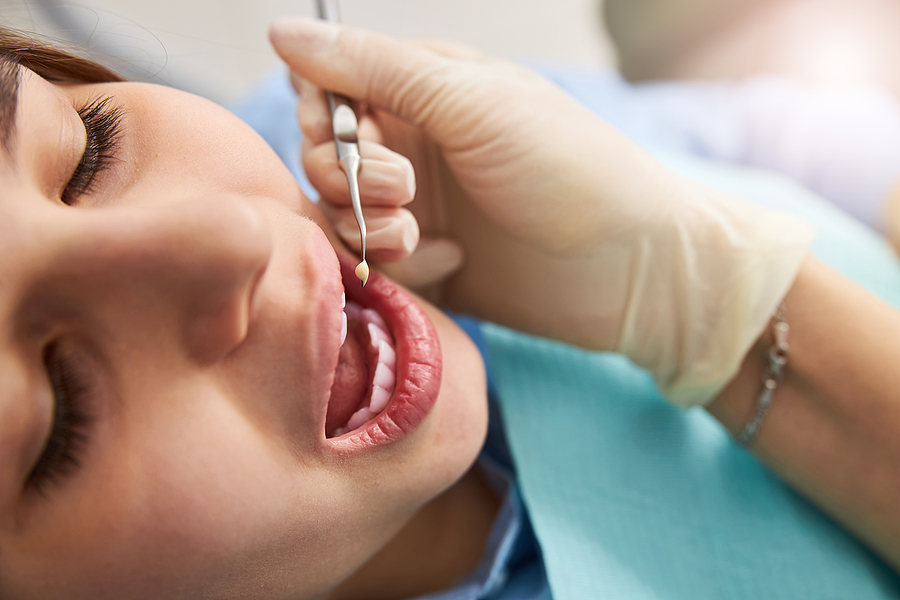To find out more about the dental services offered at our dental practice, call (801)-923-1011 or schedule an online consultation. You can also visit us at 1838 N 1075 W #100, Farmington, UT 84025, USA.
Wisdom teeth, often referred to as third molars, are a rite of passage for many young adults. These late bloomers usually make their grand entrance in the late teens or early twenties. While some people sail through this experience without a hitch, others face challenges that can lead to discomfort and complications. Understanding when it’s time to consider wisdom teeth removal is crucial for maintaining optimal oral health. Whether you're feeling pressure from your dentist or experiencing pain yourself, knowing what lies ahead can ease those concerns and help you make informed decisions about your dental care journey in Farmington, UT. Let’s dive into everything you need to know about wisdom teeth removal!
When is the right time to remove wisdom teeth?
The ideal time to remove wisdom teeth varies for each individual. Generally, dentists recommend extraction in the late teens or early twenties. At this age, the roots are not fully formed, making removal easier.
Monitoring is key. Regular dental check-ups help determine if your wisdom teeth are coming in straight or causing problems. If you experience pain, swelling, or crowding in your mouth, it might be time to consider surgery.
For some people, waiting too long can lead to complications like impaction or infection. It's essential to listen to your dentist's advice regarding timing and necessary imaging exams.
If you're uncertain about whether it's time for oral surgery in Farmington, UT, consult with a professional who can guide you based on your specific situation and needs. Early intervention often leads to better outcomes and a smoother recovery process later on.
Reasons for wisdom teeth removal
- Wisdom teeth often become problematic due to limited space in the jaw. As they emerge, they can push against adjacent teeth, causing pain and misalignment.
- Another common reason for removal is impaction. When these molars are stuck beneath the gums or bone, they can lead to infections. This situation not only causes discomfort but also increases the risk of complications down the line.
- Cysts may form around impacted wisdom teeth as well. These fluid-filled sacs can damage nearby tooth roots and even lead to more severe health issues if left untreated.
- For some individuals, dental hygiene becomes challenging with wisdom teeth present. Their location makes cleaning difficult, increasing the likelihood of cavities and gum disease over time.
Addressing these concerns early on through oral surgery in Farmington, UT, ensures a smoother path towards better oral health.
Risks and complications associated with leaving wisdom teeth in
Leaving wisdom teeth in can lead to various dental issues over time.
- One significant risk is impaction, where the tooth does not fully emerge from the gum line. This can cause pain and swelling.
- Additionally, crowded teeth are a common problem. As wisdom teeth push against existing molars, they may shift alignment and create bite issues.
- Infection is another concern. Partially erupted wisdom teeth can trap food particles and bacteria, leading to inflammation or even abscesses.
- Cysts may develop around impacted wisdom teeth as well. These fluid-filled sacs can damage surrounding bones or tissues if left untreated.
- Moreover, there’s a potential link between retained wisdom teeth and periodontal disease due to their difficult-to-reach location during regular brushing and flossing routines.
- Regular check-ups with your dentist will help monitor these risks effectively and inform you about necessary actions regarding your oral health. Contact us to learn more.
The procedure of removing wisdom teeth
The procedure for removing wisdom teeth typically starts with a thorough examination. Your dentist or oral surgeon will take X-rays to assess the position of the teeth and any potential complications.
Once you're in the chair, anesthesia is administered to ensure comfort throughout the process. Local anesthesia numbs the area, while sedation may be used for anxiety relief.
Next, an incision is made in the gum tissue to expose the tooth and bone. If necessary, some bone may be removed to access impacted teeth. The tooth is then carefully extracted, often in pieces if it’s particularly stubborn.
After removal, sutures might be placed to help with healing. The entire procedure usually takes about an hour but can vary based on individual circumstances and complexity.
Recovery process and tips
The recovery process after wisdom teeth removal varies from person to person.
- Generally, you can expect some swelling and discomfort for the first few days. Ice packs can be your best friend during this time; applying them to your cheeks helps reduce inflammation.
- Stay hydrated but avoid using straws. The suction can dislodge blood clots, leading to complications like dry sockets. Stick with soft foods for a smooth transition—think yogurt, mashed potatoes, or smoothies.
- Pain management is crucial too. Follow your dentist's advice on medication and timing to keep discomfort at bay. Rest is essential; give yourself permission to take it easy while you heal.
- Don’t forget about oral hygiene! Gently rinsing with warm salt water can promote healing without disturbing the extraction sites. Keep an eye out for any unusual symptoms and communicate with your dental provider if needed.
Conclusion
Wisdom teeth, often the final set of molars to emerge in your late teens or early twenties, can be a source of discomfort and dental complications. Knowing when to make the decision for removal is crucial. Generally, if there’s pain, swelling, or signs that they’re impacted against other teeth, it may be time to consult with your dentist.
Many individuals opt for wisdom teeth removal due to overcrowding in the mouth. This can lead to misalignment and various orthodontic issues down the line. Other reasons include recurring infections and cysts surrounding these teeth.
Leaving wisdom teeth untreated carries potential risks such as infection or damage to neighboring teeth. Complications like these underscore why monitoring their development is essential.
The procedure itself typically involves sedation options ranging from local anesthesia to general anesthesia, depending on individual needs and preferences. A qualified oral surgeon will skillfully extract the problematic teeth while minimizing discomfort.
Recovery after surgery usually takes a few days but varies by person. Resting adequately and following post-operative care instructions are vital for healing efficiently. Ice packs can help reduce swelling, while soft foods are recommended during recovery.
If you live in Farmington, UT, seeking professional advice on any concerns regarding your wisdom teeth might pave the way toward better oral health outcomes down the road.
More Blog Posts
Advanced Dental Specialty Group
Location
1838 N. 1075 W Suite 100, Farmington, UT 84025
(801) 923-1011Email Us
utahdentalspecialists@gmail.com
At Advanced Dental Specialty Group, we strongly suggest that our newer patients properly prepare for their first appointment.
- MON8:00 am - 5:00 pm
- TUE - WEDClosed
- THU8:00 am - 5:00 pm
- FRI - SUNClosed








